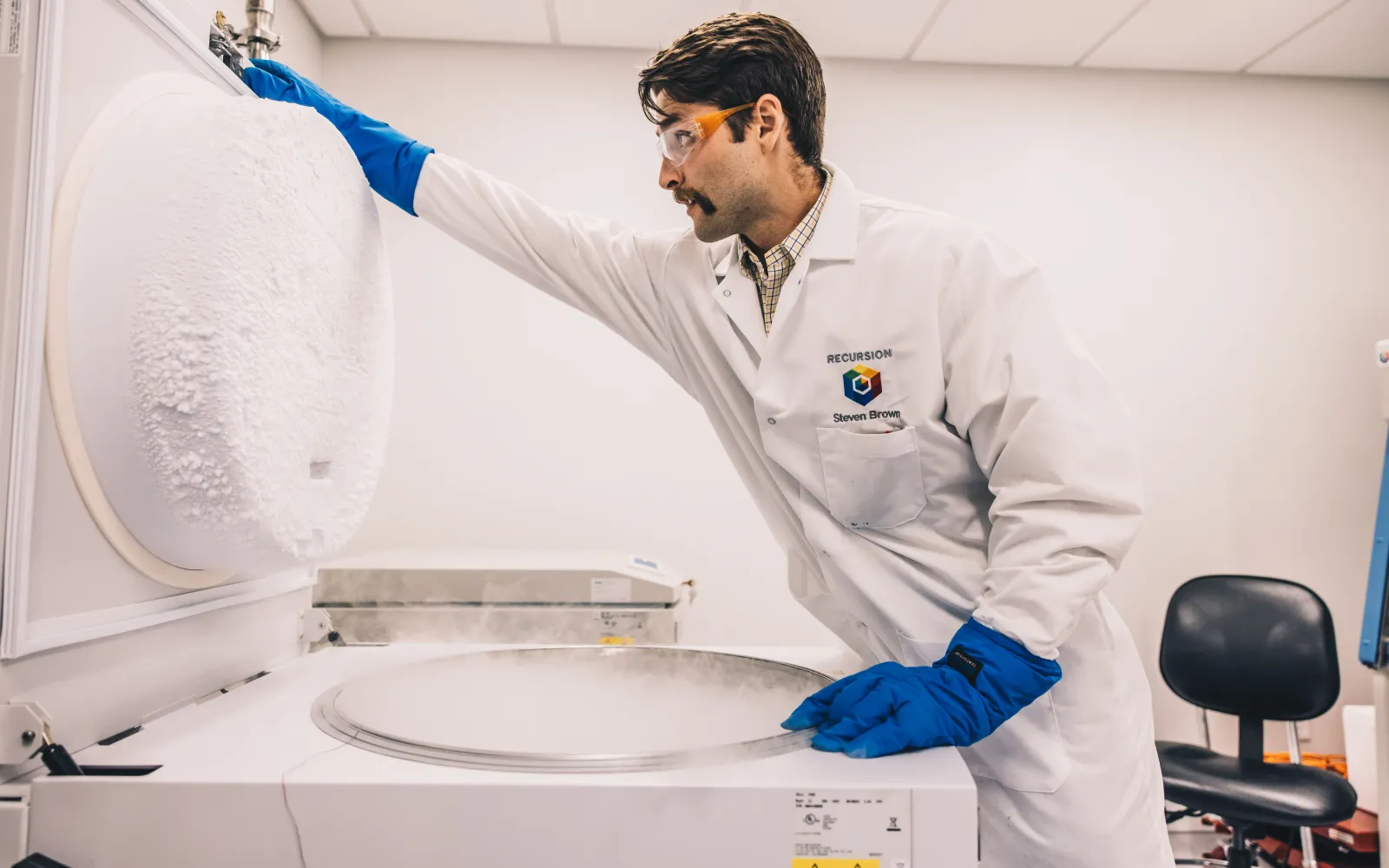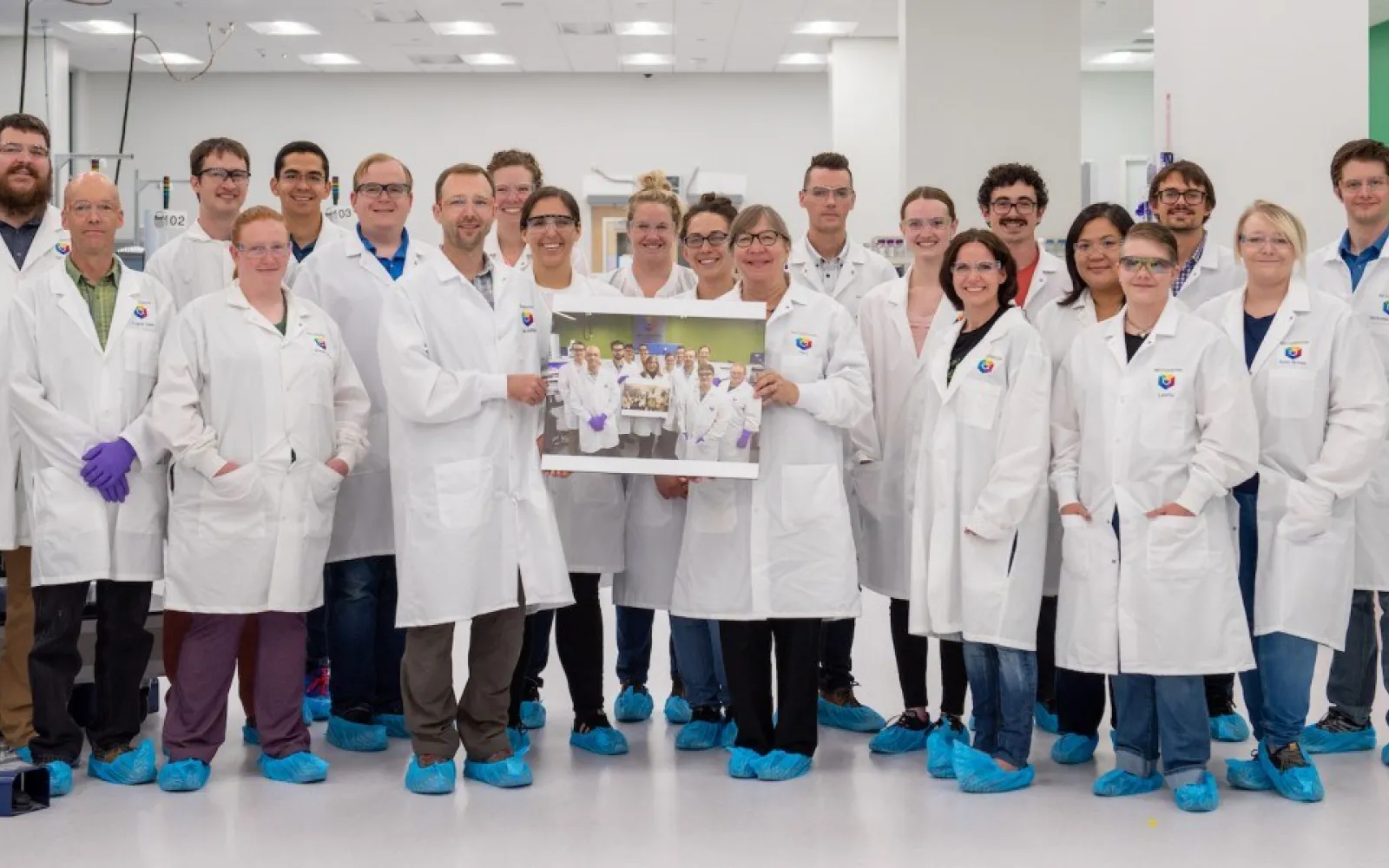

Recursion Pharmaceuticals
Turning drug discovery into a search problem
When we talk about backing startups solving some of the world’s hard problems computationally, we never lose sight of how those startups will help people in their daily lives. Today, as we solidly support Recursion’s Series D financing, is an opportunity to take a closer look at what we mean.
These are just three of the rare but highly impactful diseases and disorders the team at Recursion have devoted themselves to fighting, which combines proprietary machine learning and machine vision with a unique strand of molecular bioscience to massively accelerate drug discovery.
Recursion is an exemplar of what we mean when we talk about biology-as-a-platform – using automation and machine intelligence to speed up our understanding of biology, and then applying that knowledge to a seemingly unending number of fields that span from drug discovery to material science to agriculture.
Over this time period, CEO Chris Gibson and the entire Recursion team have made spectacular strides. Those include assembling the world’s largest biological image dataset, launching a wholly-owned subsidiary to fight Neurofibromatosis 2, and striking partnerships with major life sciences groups including Sanofi, Takeda, and now, Bayer.
In drug discovery, existing business models for pharmaceutical products are poorly designed to tackle the kind of rare, but serious, conditions like those listed above. Recursion’s novel approach is changing the economics of drug discovery, allowing them to tackle the types of diseases that have been underserved by traditional approaches. They have rapidly moved from drug discovery and preclinical testing all the way to clinical trials on multiple fronts since the company was founded in 2013.
Today, we’re reaffirming our commitment to Recursion’s mission by participating in their Series D financing and congratulating them on a big partnership with German pharmaceutical giant Bayer AG. With the new funding and partnership, Recursion now also points its powerful platform at a breadth of fibrotic diseases.
When we first backed Recursion in 2016, we saw a company opening up the opportunities of drug discovery with a novel approach to automation, machine learning, and a target-agnostic strategy that has helped them maintain a robust pipeline of potential treatments. Today we see a company that’s changing the economics of tackling rare diseases — and making a real difference in people’s lives by making diseases and genetic disorders more treatable. And, all signs point to the platform having broad applicability – well beyond just rare diseases and fibrosis




